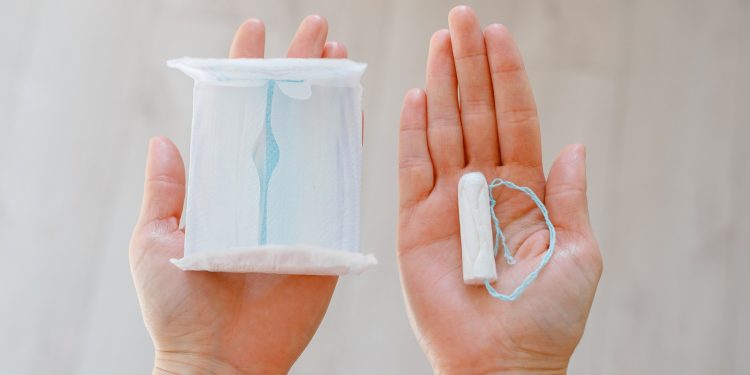Open Conversation on Menstrual Hygiene
Hey there! Today, we’re going to dive into a topic that has often been shrouded in secrecy and stigmatized throughout history – menstrual hygiene. Menstruation is a natural and essential process for half of the world’s population, yet it remains a subject veiled in whispers and taboo. Well, it’s high time we change that! It’s like we’ve been conditioned to believe that periods are some kind of mysterious, top-secret mission that we should never speak about openly. But guess what? It’s time to throw that notion out the window and start talking freely and unapologetically about menstrual hygiene. Why, you might ask? Well, because it’s a completely natural process that half the population goes through, and it’s about time we shed light on it. No more awkward whispers or secretive stashes of pads. We’re taking this conversation out into the open, where it belongs.
Understanding Menstruation
So, what exactly is menstruation? It’s the monthly shedding of the uterine lining, accompanied by the release of blood and tissues through the vagina. While it’s a completely normal bodily function, it can bring about a range of experiences for individuals, from physical discomfort to emotional changes.
Breaking the Stigma
Society has long perpetuated the stigma around menstruation, leading to silence and shame. But why should we feel embarrassed about something that’s a natural part of life? By talking openly about menstruation, we can challenge these societal norms and create a safe space for discussions.
Promoting Menstrual Hygiene Education
One of the most crucial aspects of breaking the stigma is providing comprehensive menstrual hygiene education. Educating both girls and boys about menstruation ensures that everyone understands the process and can empathize with those who experience it. It helps dispel myths and misconceptions surrounding menstruation, paving the way for a more understanding and supportive society.
Access to Menstrual Products
Another crucial aspect of menstrual hygiene is ensuring access to affordable and hygienic menstrual products. Unfortunately, in many parts of the world, access to such products remains a challenge, leading to unhygienic practices or even school dropouts. Governments, organizations, and individuals must work together to make these products widely available and affordable, empowering individuals to manage their menstruation with dignity.
Sustainable Menstruation
While we strive for accessibility, we must also address the environmental impact of menstrual products. Disposable pads and tampons contribute to tons of waste that ends up in landfills, taking years to decompose. It’s time to explore more sustainable options, such as menstrual cups, reusable cloth pads, and period underwear. These, apart from reducing waste they also save money in the future.
Supporting Menstruators in Workplaces and Schools
Menstruation should never hinder someone’s ability to succeed in their education or career. Schools and workplaces must provide adequate facilities such as clean and private restrooms, sanitary disposal options, and access to menstrual products. By fostering an inclusive environment, we ensure that menstruators can participate fully without fear of embarrassment or discomfort.
Menstruation and Health
Menstrual hygiene is not only about managing the bleeding; it’s also about maintaining good reproductive health. Regular check-ups, addressing any menstrual irregularities, and seeking medical advice for severe pain are essential steps to ensure overall well-being. Let’s encourage open conversations about these topics and empower individuals to take charge of their health.
Supportive Communities
Creating supportive communities is vital for fostering conversations about menstrual hygiene. Families, friends, and partners can play a crucial role by providing emotional support, understanding, and empathy. Open dialogue within our communities helps break down barriers and encourages individuals to embrace their bodies and menstrual experiences.
Empowering the Next Generation
To create lasting change, we must empower the next generation to embrace menstruation without shame or secrecy. By teaching children from a young age about menstruation, we normalize the topic and instill values of respect, empathy, and gender equality. Let’s ensure that the coming generations grow up in a world where menstrual hygiene is an open and accepted part of life.
Conclusion
Well, that was quite the conversation! By engaging in an open conversation about menstrual hygiene, we have taken a significant step toward breaking the stigma and normalizing a natural bodily process. It’s time to embrace menstruation as a normal part of life and provide the necessary support and resources for individuals to manage their periods with dignity and comfort. Through comprehensive education, access to affordable and sustainable menstrual products, supportive workplaces and schools, and nurturing communities, we can create an environment where menstruators feel empowered and valued. It’s not just about managing the bleeding; it’s about ensuring overall reproductive health, fostering inclusivity, and promoting gender equality. So, let’s continue this conversation beyond these words. Let’s share our experiences, knowledge, and ideas with friends, family, and communities. Let’s challenge the taboos and stereotypes surrounding menstruation and work together to create a world where menstrual hygiene is openly discussed, understood, and supported. Remember, menstruation is a beautiful and natural part of life. It’s time to celebrate it, embrace it, and empower those who experience it.











Discussion about this post